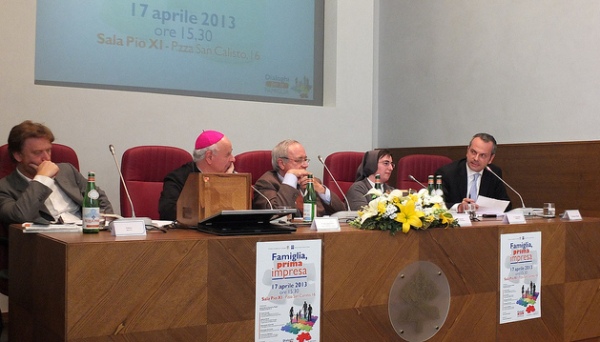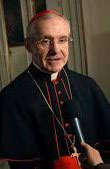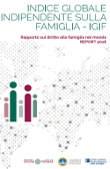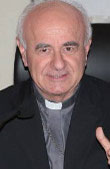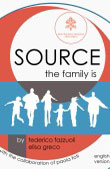3/An Interview with Vincenzo Bassi, lawyer of the Union of Italian Catholic Jurists
On the sidelines of the first conference-seminar of the series “Dialogues for the Family,” promoted by the Pontifical Council for the Family, which was held on Wednesday, April 17th, on the topic “The Family: the first enterprise,” in collaboration with the Union of Italian Catholic Jurists and in the presence of a large audience, Emanuela Bambara took an interview with the speakers exclusively for our Dicastery.
Vincenzo Bassi, tax lawyer, of the Union of Italian Catholic Jurists
Question: What legislative and fiscal interventions are most urgently needed so that the family policies don’t remain mere abstract statements, with no practical application?
Answer: First and foremost, the policies for the family shouldn’t be political measures for dealing with family emergencies. This means that it’s necessary to start looking at the family as the subject from which to relaunch the economy. The family is not a passive, parasitic subject, but an economically productive one, like any other enterprise. Major reforms are useless; but it’s necessary simply to begin treating the family like any other productive economic entity, and therefore like an enterprise. If the family is freed from its numerous bonds and manifests its productive economic role publicly, it will obviously be easy to approve political reforms for the family that will allow it to better perform its service alongside and in favor of the best economic development, and not only economic but also social development.
Question: From the point of view of taxation and the tax law, what kinds of projects should be implemented?
Answer: It’s enough to change the relationship between contributors and the tax authorities. The contributor is precisely that, since he contributes to public expenses and not because he pays taxes. Taxes are one way of contributing to public expenditures. The family is an evident model of the voluntary contributor, because, by existing, it contributes to public expenditures. So, if we go back to thinking that contributing to public expenditures is a joy, just like it’s a joy to have a family, society will probably find greater optimism and resources to deal with difficult times like this one, precisely by looking toward the family.
The video of the interview with Vincenzo Bassi


